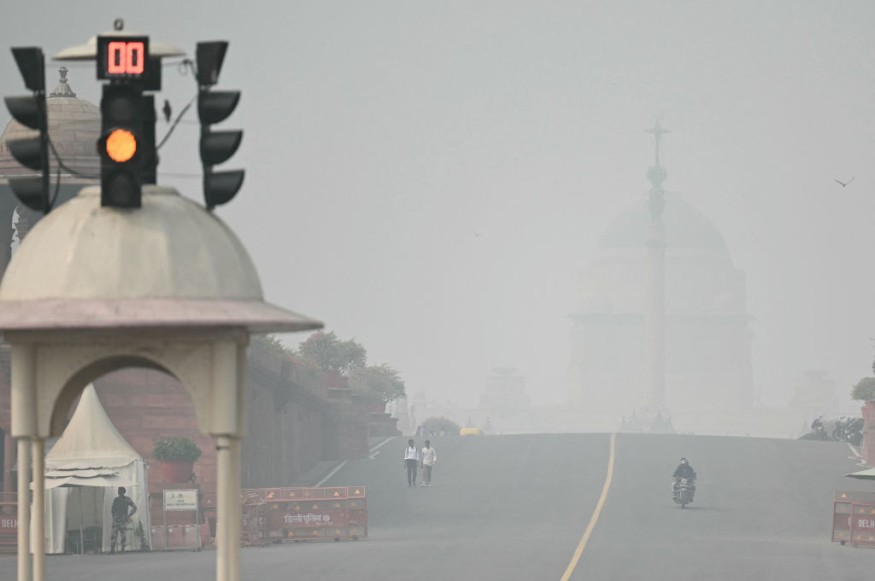
On Day 3 of persistent air pollution, officials decided to implement an odd-even traffic scheme to limit the usage of vehicles due to the severely unhealthy air quality in New Delhi.
Day 3: Severe and Unsafe Air Quality
New Delhi, India, is taking measures to combat its escalating pollution crisis. Despite ongoing efforts, the capital's air quality has dangerously deteriorated for a third consecutive day. This perilous situation is particularly prevalent as winter approaches, with stagnant winds and low temperatures exacerbating pollution levels. The city's iconic landmarks, including the federal secretariat and the president's palace, are now shrouded in thick smog, leading to reduced visibility.
In response to the growing public concern and the expected rise in pollution following the Diwali festival on November 12, the local government has announced a stringent plan. From November 13 to 20, New Delhi will implement the "odd-even" traffic scheme, permitting vehicles with odd registration numbers on odd dates and even numbers on alternate days. However, past experiences have shown mixed results, with reduced traffic congestion but limited impact on pollution reduction.
Emphasizing the urgency of the matter, the local environment minister, Gopal Rai, has underlined the need for this action and scheduled a meeting to discuss its implementation. Delhi's current status as the second most polluted city globally, trailing only behind Lahore, Pakistan, serves as a stark reminder of the pressing nature of this issue. This situation underscores the critical importance of tackling pollution for the well-being of both the city's residents and its environment.
The World Cup Must Go On
Despite the hazardous air quality in New Delhi, a Cricket World Cup match between Sri Lanka and Bangladesh proceeded on Monday. Organizers took measures such as installing air purifiers in dressing rooms and using water sprinklers to reduce pollutants. Restrictions on vehicles were imposed in addition to bans on construction and entry of trucks. Around 20,000 spectators attended the match, which became a focal point due to the filthy air.
The air quality index (AQI) near Arun Jaitley Stadium reached nearly 400, raising concerns of possible delays or cancellations. An AQI of 0-50 is good, while 400-500 is dangerous for people, particularly those with existing health issues. Both teams had to adjust their training sessions, with Sri Lankan players wearing masks.
Meanwhile, Bangladesh cricketers afflicted with asthma remained indoors.
Poor Air Quality and Child Health
The findings from a minimum of 25 studies have highlighted the concerning consequences of poor air quality on child health, including links to low birth weight, preterm delivery, stillbirth, developmental delays, restricted growth, and even mortality.
One notable 2018 study conducted in Tamil Nadu indicated that a mere 10-μg/m3 increase in particulate matter during pregnancy resulted in a 4-gram reduction in birth weight and a 2% increase in the prevalence of low birth weight. This correlation was reaffirmed by a nationwide study in India in 2021.
A recent study from 2023 further accentuated these concerns, revealing that a 10 μg/m3 rise in PM2.5 exposure led to a 10% increase in anemia, an 11% surge in acute respiratory infections, and a 5% rise in low birth weight prevalence among children under five in India.
Together with a minimum of 22 other studies, these findings underscore the extensive and severe consequences of subpar air quality on the well-being of children.
© 2025 NatureWorldNews.com All rights reserved. Do not reproduce without permission.





